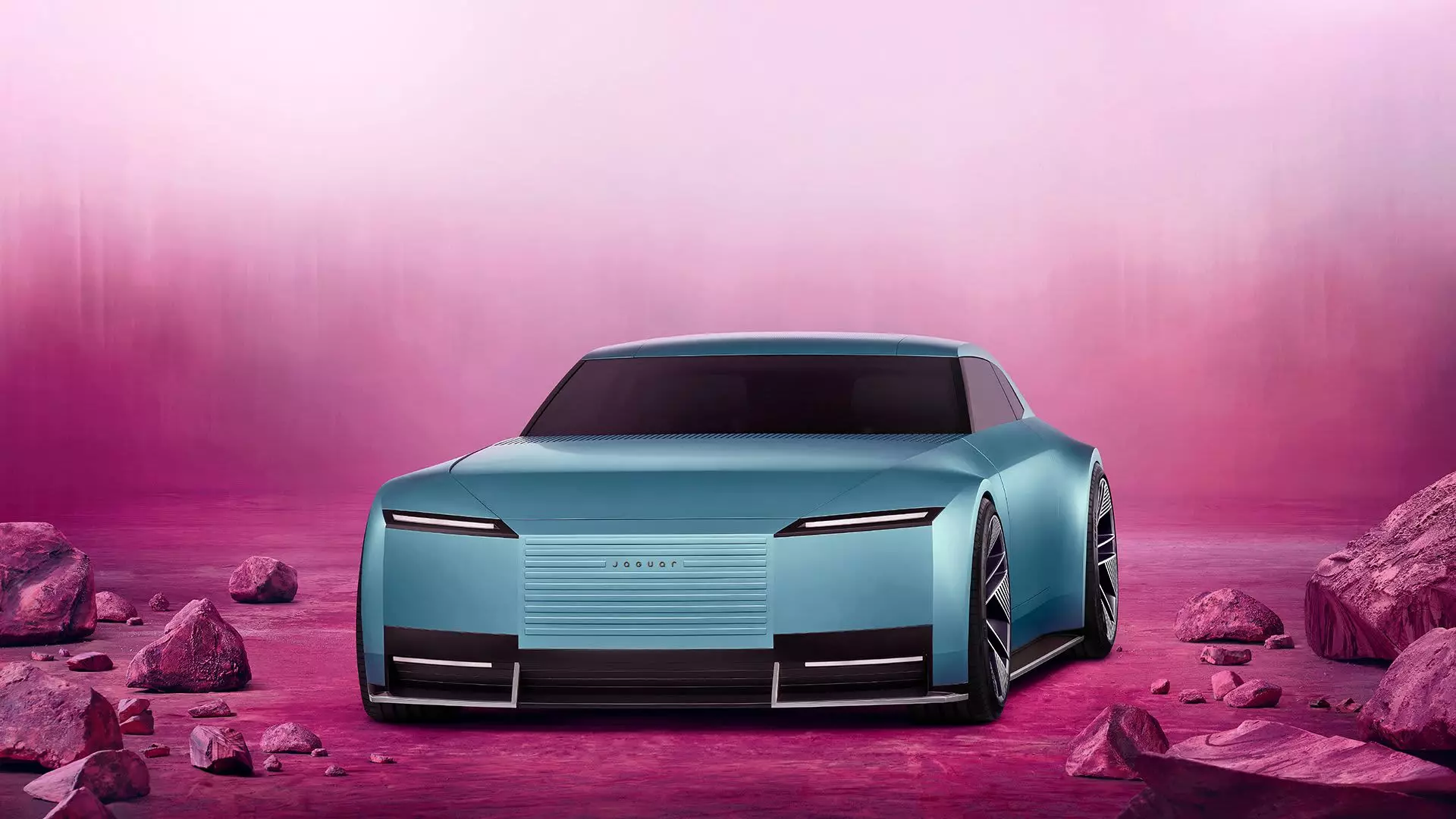On a night charged with anticipation, Jaguar, a renowned player in the automotive world, unveiled its latest venture into a future dominated by electric vehicles with the debut of the concept car known as “Type 00.” Pronounced “Type Zero Zero,” this vehicle marks a distinct departure from Jaguar’s historically sporty designs. The new vehicle is characterized by its minimalist yet audacious aesthetic—a boxy shape complemented by sleek lighting and oversized wheels. This design is a dramatic evolution away from the brand’s established sports cars and SUVs, suggesting a new era for the Jaguar lineage.
Concept cars like the Type 00 are critical tools for automakers. They serve as a platform to showcase potential designs and gauge public interest before committing to production lines. While consumers won’t be able to purchase the Type 00, its role in painting Jaguar’s vision for a future lineup of electric vehicles is invaluable. This approach reflects a broader industry trend towards electric vehicles, as manufacturers strive to adapt to changing consumer preferences and environmental considerations.
Jaguar has ambitious plans in the pipeline, set against the backdrop of an evolving global automotive market. The manufacturer is gearing up to introduce several new electric vehicles (EVs) in the coming years, including a four-door grand tourer expected to share design elements with the Type 00. Such a move is ambitious and speaks to the company’s desire to retain relevance in a world that increasingly favors sustainability without compromising on luxury or performance. The projected range of up to 430 miles on a single charge, with the capability of gaining 200 miles in just 15 minutes of rapid charging, reflects Jaguar’s commitment to engineering excellence and innovation.
These strides in electric vehicle technology are essential, especially as the automotive industry faces numerous challenges and a slow adoption rate of EVs by consumers. The shift to electric is not merely a trend but a necessary evolution, aligning with global efforts to reduce carbon footprints and combat climate change.
The launch of the Type 00 was preceded by the release of a provocative marketing campaign titled “Copy Nothing.” This bold move entailed an artistically vibrant video that embraced diversity in its casting, featuring a range of models that defied traditional automotive advertising norms. The campaign, designed to rebrand Jaguar, included the introduction of new logos and fonts, signaling a shift away from the legacy elements that have defined the brand for decades.
However, the response to this campaign was a mixed bag. While aimed at generating buzz, the advertising drew significant criticism online. Detractors took issue with various aspects, from the choice of font to the omission of the iconic Jaguar animal logo that has graced its cars since the 1950s. Accusations of “wokeness” and claims that Jaguar was distancing itself from its heritage filled social media platforms, suggesting that even progressive changes can face backlash from long-time fans. Critics were particularly pointed in their observations that, ironically, the promotional video showcased everything but the vehicle.
Despite the turbulence, Jaguar stands firm in its commitment to its rebranding strategy, positioning it as a bold reinvention of the iconic nameplate. Managing Director Rawdon Glover articulated this sentiment, stressing the necessity to break free from traditional automotive stereotypes as the brand seeks to establish itself at a new price point and consumer demographic.
The launch of the Type 00 concept car and the accompanying marketing campaign come as Jaguar prepares for an ambitious transition to becoming an electric-only automaker by 2026. This move underscores the broader movement within the automotive sector, as several manufacturers shift their focus towards sustainable solutions. However, it is essential to recognize that this transition is fraught with challenges, and the initial enthusiasm for electric vehicles has not uniformly translated into sales increases.
Jaguar’s decision to halt new car sales in the U.K. as it pivots towards this electric future indicates a company fully aware of the shifting tides in consumer demand. The path forward is, undoubtedly, laden with uncertainties, but Jaguar’s proactive approach could position it to emerge as a leader in the electric vehicle market—if it can successfully navigate the evolving landscape while garnering public support for its new identity.

Leave a Reply